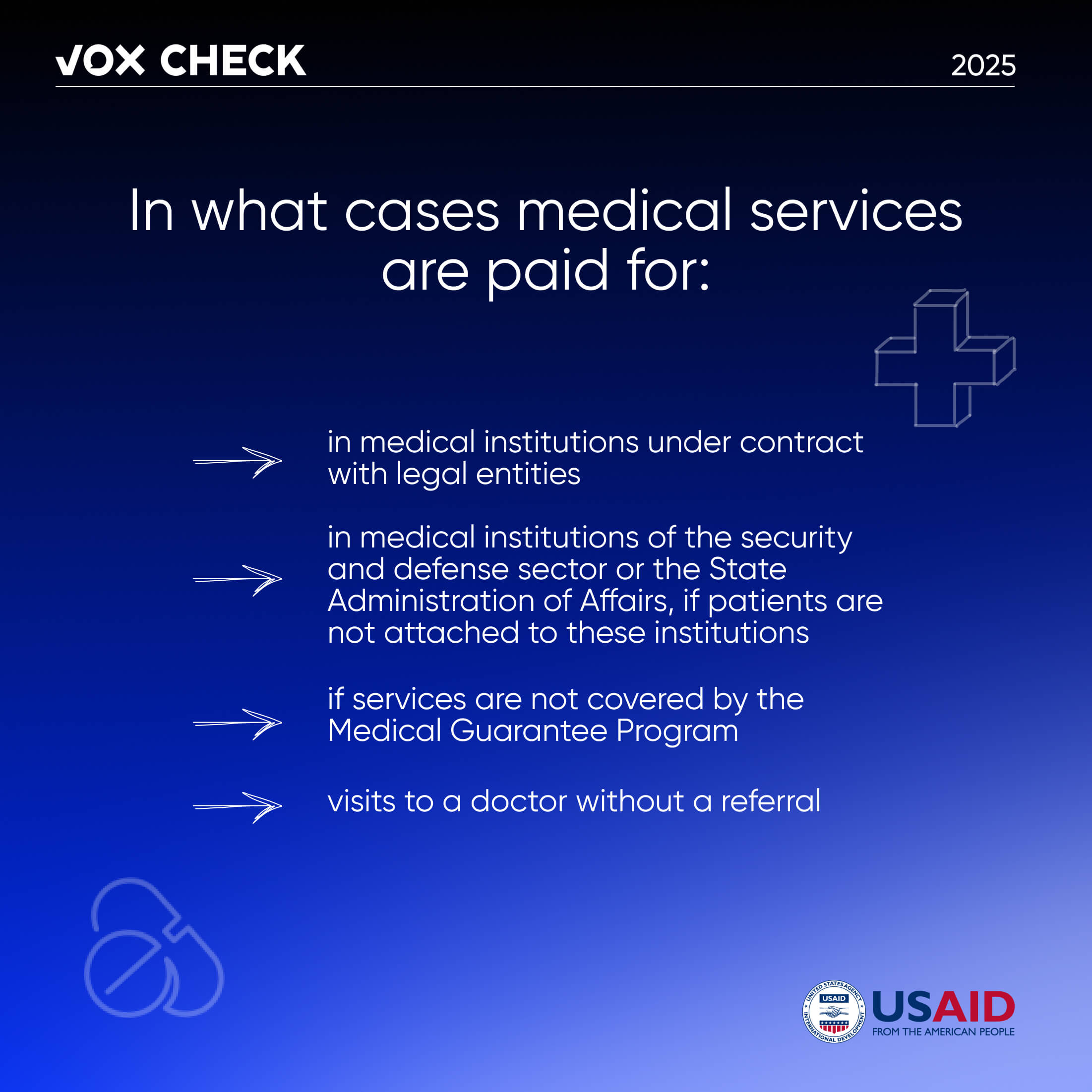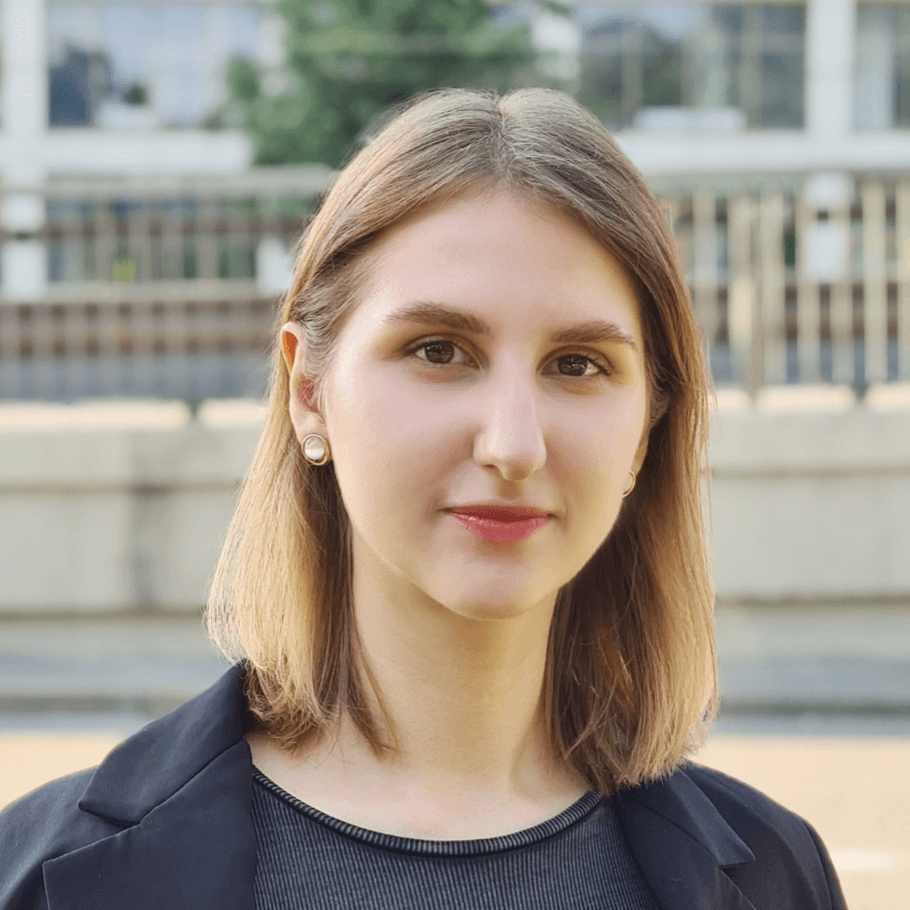As of January 1, 2025, a regulation came into effect establishing provisions for paid consultations for patients without referrals. In reality, little will change for patients — the state continues to cover a range of medical services. However, this news has become a focus for propagandists, who persist in alarming Ukrainians by claiming that allegedly the regulation will abolish free healthcare or lead to longer waiting times in hospitals.
With the support of the USAID Health Reform Support project, VoxCheck analyzes and refutes public health narratives spread in the information space of Ukraine, Belarus, and russia on a weekly basis.
Information is being spread online that allegedly Resolution No. 781, which clearly defines the norm for paid consultations for patients without referrals, will limit access to free examinations. Some claim that this document allegedly will result in massive queues at medical facilities.
What’s the reality?
In reality, almost nothing changes. Since 2018, there has been a clear list of paid and free medical services, with funding for the latter still allocated annually in the state budget. A detailed list of free services is available, for example, on the website of the National Health Service of Ukraine. In 2025, the Medical Guarantees Program includes 44 packages. These services can be accessed at state, municipal, or private medical facilities that have contracts with the National Health Service of Ukraine.
The resolution that came into force on January 1, 2025, merely formalizes the list of paid services. Medical facilities are required to publish a price list for paid services so that patients clearly know what is covered by the Medical Guarantees Program and what is not. Ukraine’s Minister of Health, Viktor Liashko, also stated that the ministry will annually analyze the popularity of paid services requested by patients and work toward making them free when possible.
Moreover, paid consultations for patients without referrals have been in place since 2018. This system has been operating for seven years, making it unlikely that there will be a significant increase in doctors’ workload now. During this time, mechanisms have emerged in Ukraine to help avoid long waits for doctor visits. For instance, thanks to electronic prescriptions, some patients do not need to book follow-up consultations just to receive a prescription. For chronic or recurrent conditions, a doctor can issue a follow-up e-prescription remotely. Patients should discuss this option with their family doctor in advance.
According to Nataliia Lisnevska, former Deputy Minister of Health of Ukraine (2014–2015) and lawyer, only a doctor can determine whether a specific service is genuinely needed for the patient. Conversely, patients’ unilateral decisions to visit a particular specialist without prior consultation with a family doctor could create queues. People mistakenly “self-prescribed” visits to specialists who were not actually relevant to their issue.
Thus, seeing a doctor based on a referral issued by a family doctor is beneficial for both patients, as the visit will be free, and specialists, as they will not be overburdened. In this way, family doctors help prevent queues to specialized doctors.

Source: Ministry of Health of Ukraine
At the same time, the regulation does not abolish the list of doctors who can be consulted without a referral, including:
- obstetricians-gynecologists;
- psychiatrists;
- narcologists;
- dentists;
- phthisiatrists;
- doctors managing patients with chronic diseases;
- any doctor in emergency situations.
Rumors about the alleged complete abolition of free medical care are not new. Similar fakes were circulated online as far back as July 2024.
This information piece was produced with the assistance of the United States Agency for International Development (USAID), provided on behalf of the people of the United States of America. This article’s content, which does not necessarily reflect the views of USAID, the United States Government, is the sole responsibility of Deloitte Consulting under contract #72012118C00001.

Photo: depositphotos.com/ua
Attention
The author doesn`t work for, consult to, own shares in or receive funding from any company or organization that would benefit from this article, and have no relevant affiliations


